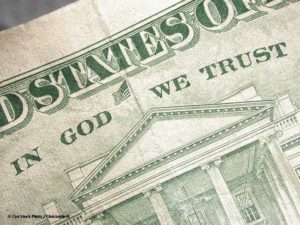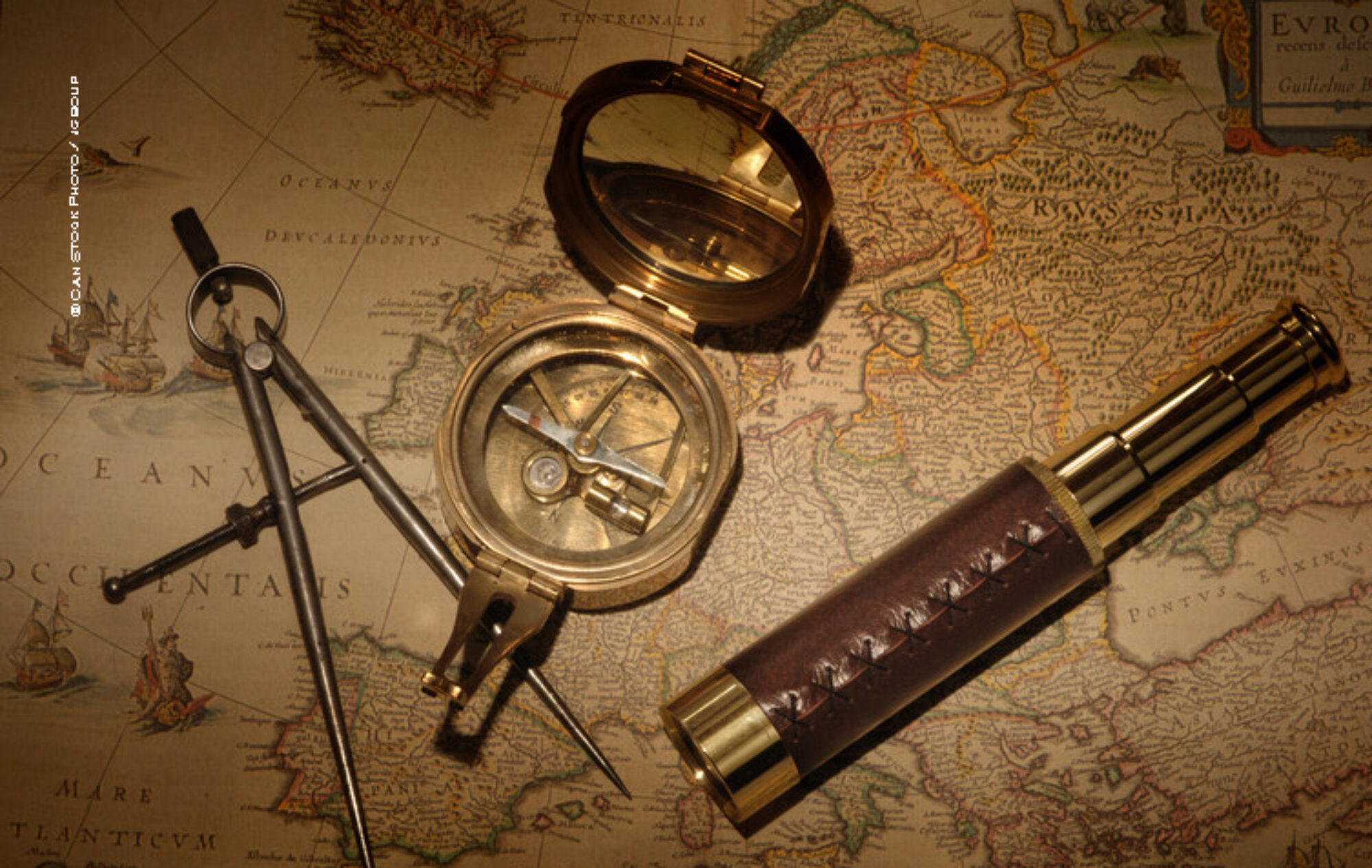 This is the second part of an article on trust. In Part One, most of the discussion was on whom I did not trust and why. Of course, everyone wants to be on the other list, the “I Trust” list. In the last article, I asked that you take some time to make your own list of those you trust and don’t’ trust and to think about why they fall on a particular list. The ultimate aim for you to strive to be on everyone else’s “I Trust” list. It’s a great list to be on.
This is the second part of an article on trust. In Part One, most of the discussion was on whom I did not trust and why. Of course, everyone wants to be on the other list, the “I Trust” list. In the last article, I asked that you take some time to make your own list of those you trust and don’t’ trust and to think about why they fall on a particular list. The ultimate aim for you to strive to be on everyone else’s “I Trust” list. It’s a great list to be on.
Whom do I Trust?
I had a tougher time coming up with a list of those I trust because I found that unless someone had done something to violate my trust, most people were on my “I Trust Them” list. There are some obvious ones that I won’t dwell on: parents, brother, wife, children and their families, close friends, etc. There are some outside of my immediate circle of family and friends that I do think are worth mentioning:
My pilot. Many years ago as a Bombardier/Navigator flying A-6 Intruders I found myself completely dependent on the aviation skills of the person sitting directly to my left, my pilot. Over the years I may have trusted some more than others, but I never jumped in a jet without complete confidence that we were going to get home safely. There were no flight controls over on my side, so I guess I didn’t have much of a choice.
The flight deck crew. More than 1000 times I placed my life in the hands of the young Sailors who were responsible for maintaining my  airplane,hooking it to the catapult, ensuring the correct amount of steam was dialed in, directing my Intruder back to the carrier via radar control, setting the arresting gear to the correct weight and taxing the jet to a safe parking spot. Over the course of a deployment, I came to know many of them personally….but not all. And still I trusted them completely.
airplane,hooking it to the catapult, ensuring the correct amount of steam was dialed in, directing my Intruder back to the carrier via radar control, setting the arresting gear to the correct weight and taxing the jet to a safe parking spot. Over the course of a deployment, I came to know many of them personally….but not all. And still I trusted them completely.
The Post Office. Oddly enough, I trust the Post Office to deliver important mail, almost without question…I send my tax payments, pay bills, and Christmas cards and expect them to get there, on time and intact. If I didn’t trust them, I suppose I could use FEDEX, UPS or some other private courier, but they are expensive. Because I trust the Post Office to deliver, it’s not worth the cost and, in truth, FEDEX has lost a very valuable shipment (my golf clubs). I’m reminded of the scene in Miracle on 34th Street when Fred Gailey does such a masterful job of describing the Post Office. Unfortunately, his main point is the US Postal Service is an arm of the US Government, and that alone should prove that it’s efficient, effective and reliable- not necessarily these days. A recent Gallup Poll revealed 47% of Americans have little or no confidence in their government. (ED Note: The Lovely Mrs. Crenshaw disagrees with me on this one….yet she still sends lots of payments through the US Mail..I’m just sayin’)
Amazon Prime. You can count of one hand the number of times that Amazon has missed a promised delivery date. When they do miss, I get a message letting me know that something’s going to be late. So I trust Amazon not only because they have a track record of delivering on their promises, but also because they let me know when they are going to fall short of my expectations. This is an important concept for leaders to ponder. Those who work for you will not always be right, or deliver on your expectations. But if you let them know that you trust them, more often than not they will deliver and your trust level with them will increase. I always expected that everyone who worked for me was doing their jobs and didn’t spend a lot of time checking up on them. If something went amiss and they had told me about it, then I may not have been happy, but I did not lose trust in them. On the other hand, if something went wrong and I didn’t know about it, not only was I unhappy, but I also lost trust in that person. As a result, I had to check on everything they were doing and eventually I just didn’t give them anything to do.
Banks. Call me naïve, but I just don’t worry about the safety and integrity of my deposits. I’ve had a hiccup or two throughout the years, but unlike my  parents, I keep the majority of my money deposited in bank accounts. I mention that because as my brother and I have been going through things in the old family home (My Dad passed away a couple of years ago and my Mom now lives in an assisted living facility) we found some cash just stuffed between the pages various books. My Dad kept a giant safe in the house with a substantial amount of cash in it. They never had credit cards, and on the rare occasion they travelled, they used cash. They were a product of the Great Depression and no doubt didn’t trust banks as a result. I know that there are constant cyber threats which seek to challenge the integrity of the banking system, but I trust my financial institutions to stay on top of things.
parents, I keep the majority of my money deposited in bank accounts. I mention that because as my brother and I have been going through things in the old family home (My Dad passed away a couple of years ago and my Mom now lives in an assisted living facility) we found some cash just stuffed between the pages various books. My Dad kept a giant safe in the house with a substantial amount of cash in it. They never had credit cards, and on the rare occasion they travelled, they used cash. They were a product of the Great Depression and no doubt didn’t trust banks as a result. I know that there are constant cyber threats which seek to challenge the integrity of the banking system, but I trust my financial institutions to stay on top of things.
The pilots in the cockpit of my next flight. Why not? If I didn’t trust them I guess I would drive. Of course, I have no idea who they will be or what their safety record is. I trust that the various players in that chain have followed all the rules and regulations and that the pilots themselves have enough integrity to know when it’s not safe for them to fly. I know there are occasional reports where a crewmember has been removed for being drunk but they are not frequent enough to affect my trust. In reality, it’s not the individuals I trust, but the institutions which govern the pilots’ behavior. I assume that such institutions are one of those that the 53% of Americans do trust . I just saw in the news that 2017 was an extremely safe year for American-based airlines, with zero casualties related to accidents. My trust seems well placed, for now.
Factors in Trust
So why do I trust those on my list? I won’t comment on my trust of family and friends, except to say that in almost seven decades they have never let me down. It’s why I’m generally a trusting person. I know that not all of you will trust every family member, spouse or certain friends, most likely because they violated your trust. That gets to a point I made in the previous article, lack of trust because that trust was violated. Here are some factors in fostering trust:
Reliability. Many people and organizations I trust deliver on their promises regularly and reliability. It’s important to note that those organizations don’t always deliver, but the ones I trust are really good about keeping me informed when they know my expectations may not be met. When they miss the mark, I have confidence that they are looking into the whys and wherefores and they will do better next time. If you want others to trust you, you have to deliver or “fess” up when you fall short.
Empathy. I trust those that I think are considering my concerns when they are making decisions on my behalf. Those decisions may not always be the ones I would make, but at least they considered my point of view. This is the principal reason many Americans lack trust in the Hill at present. A December 2017 Gallup Poll on approval rating of the US Congress found that 78% of Americans disapprove of the job Congress is doing. I submit that most of the problems on the Hill come from a lack of trust among them. Neither side of the aisle trusts the other, so nothing really gets done. People compromise when there is respect for and trust in the views of others. Violation of confidentiality, constant partisan bickering and “he said, she said” confrontations all erode trust. To be trusted in your dealing with others, they must feel that you care about their views, not necessarily agree with them.
Honesty. If I find out that someone was not honest with me, I will not trust them. Honesty is fundamental to any trusting relationship. There’s a presentation on Ethical Decisions in the Insights tab of the CCA Website, and it has a section on honesty, truth and truthfulness, so I won’t rehash that here. I do want to say a word about my previous comment about telling the truth and being truthful. I’ve seen this get people into trouble again and again and as a result, they lose credibility and sacrifice trust. You know what I’m talking about here. Remember the old gag in The Pink Panther? “Does your dog bite?”
Same thing here. Carefully crafting answers that are true, but not truthful is a quick ticket to the “Don’t Trust” list.
Track Record of Trust. If I tell you something in confidence, I expect my wishes to be honored. People who have proved themselves trustworthy by respecting my wishes in the past are likely to stay on my trust list until proven otherwise. In the electronic age this is hard to do. There are so many ways that you can inadvertently blab something said in confidence and the next thing you know, it shows up on Facebook. Being able to openly express opinions is part of a healthy debate, but be sure all know the ground rules before getting started. I go to a lot of events with Chatham House Rules. If you want a whole bunch of folks labeling you as untrustworthy, violate that rule. However, a word to the wise. Nothing in the world of public affairs is “off the record.” I am very choosy about whom I choose to speak to “in confidence” and you should be too!
Hope this wasn’t too long. I’m sure you have your own criteria for whom you trust. But spending some time thinking about how you earn and keep the trust of others is very important as a leader or executive. Whether on the battle field or in the boardroom, trust is a key aspect of your effectiveness as a leader. If people don’t trust you, it’s going to be awfully hard to get them on the bus. There used to be a paper floating about with excerpts from British Navy fitness reports. One of my favorites was “his men would follow him anywhere, but only out of sheer curiosity.” Make sure your followers are not just curious, but trusting as well.
PS. Please excuse my misuse of who and whom. I know I have violated the who or whom rules. But “Whom Do You Trust” sounds so pretentious. My old English teachers are all rolling in their graves and I apologize to them.


 security, check again on flight status (On Time) and head on over to the gate. I’ve got a nifty app on my phone that lets me see where the airplane is coming from so I can check on it….Lo and behold, my airplane is 30 minutes behind schedule ….but at my gate it still says “On Time.” If I ask the gate agent, usually I get a “nothing is showing on my system” reply. Eventually, they have to come clean and the announcement is made that there’s a delay. Now they post a new departure time, usually wildly optimistic, that they have no hope of making….I’d much rather they use technology and post actual status….6 minutes late, or 15 minutes early. By the way, ever had a delay because the aircrew was late arriving from another flight? The airlines know that way ahead of time. Why don’t they put a status up that reflects that? I don’t trust ‘em.
security, check again on flight status (On Time) and head on over to the gate. I’ve got a nifty app on my phone that lets me see where the airplane is coming from so I can check on it….Lo and behold, my airplane is 30 minutes behind schedule ….but at my gate it still says “On Time.” If I ask the gate agent, usually I get a “nothing is showing on my system” reply. Eventually, they have to come clean and the announcement is made that there’s a delay. Now they post a new departure time, usually wildly optimistic, that they have no hope of making….I’d much rather they use technology and post actual status….6 minutes late, or 15 minutes early. By the way, ever had a delay because the aircrew was late arriving from another flight? The airlines know that way ahead of time. Why don’t they put a status up that reflects that? I don’t trust ‘em. develops.” Huh? Why say “There’s a chance of snow tomorrow” when you can say “I can’t rule out the possibility of over 12 inches of snow and blizzard conditions similar to Antarctica will be here tomorrow because the Manchurian model says so.” And why are we naming storms which we used to label northeasters except to make them seem as serious as a hurricane so the viewers will “stay tuned”? Since when has a cold spell become a “Bomb?” Everything the weather reporters say always emphasize the extremes. I’m interested in their best guess about what’s likely to happen, not their speculations on how bad it might be. They seem to be just opposite.
develops.” Huh? Why say “There’s a chance of snow tomorrow” when you can say “I can’t rule out the possibility of over 12 inches of snow and blizzard conditions similar to Antarctica will be here tomorrow because the Manchurian model says so.” And why are we naming storms which we used to label northeasters except to make them seem as serious as a hurricane so the viewers will “stay tuned”? Since when has a cold spell become a “Bomb?” Everything the weather reporters say always emphasize the extremes. I’m interested in their best guess about what’s likely to happen, not their speculations on how bad it might be. They seem to be just opposite.